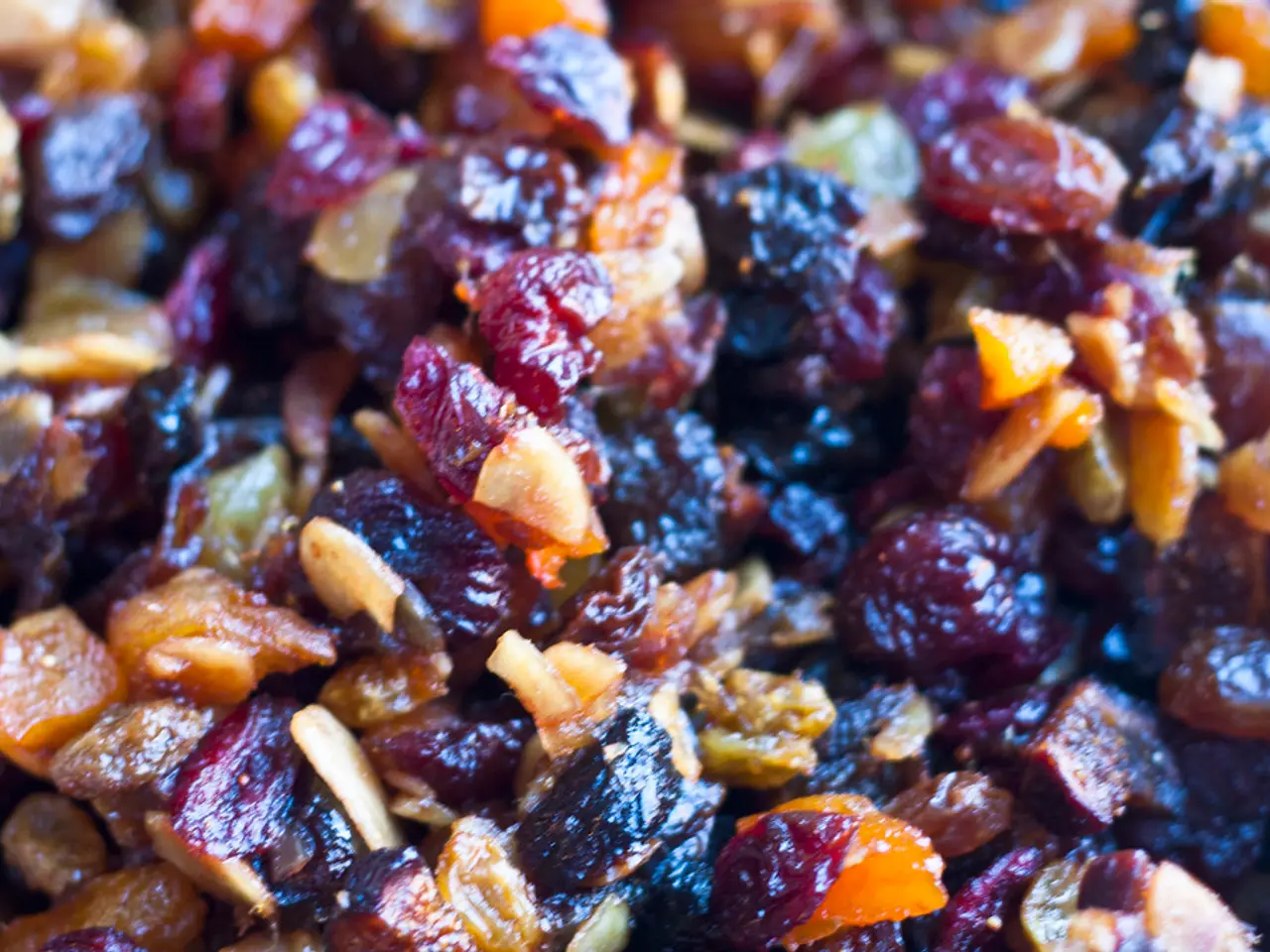Guidance on Diet and Health Improvement
A balanced diet and adequate hydration play a significant role in promoting not only physical health but also mental wellbeing. Here's a closer look at how essential nutrients, fluids, and regular physical activity contribute to overall wellness.
Nutrition supports brain function and mood regulation, making it crucial for maintaining mental health. Understanding the role of macronutrients (proteins, carbohydrates, and fats) and micronutrients (vitamins and minerals) is essential for making informed choices about your diet.
A balanced diet that incorporates a variety of nutrient-dense foods is key to achieving good health. The recommended food groups for this diet include vegetables, fruits, grains, proteins, dairy and dairy alternatives, fats, and water.
Vegetables, rich in vitamins, minerals, fiber, and low in calories, support health and disease prevention. Fruits provide vitamins, minerals, and fiber essential for health and disease risk reduction. Whole grains offer increased fiber intake, aiding fullness, digestion, and lowering the risk of heart disease and diabetes.
Protein sources should be diverse, including lean meats, poultry, fish (especially oily fish for omega-3), eggs, beans, pulses, lentils, tofu, nuts, and seeds. Dairy and dairy alternatives provide calcium, vitamin D, and protein, supporting bone health. Healthy fats are important for energy, nutrient absorption, and cell function.
Hydration, essential for digestion, nutrient absorption, and maintaining bodily functions, is a key part of wellbeing. Adequate hydration supports digestion, nutrient absorption, and good physical performance during exercise. In addition to water, fluids such as herbal teas, infused water with fruits or herbs, coconut water, and milk can contribute to overall hydration.
Staying adequately hydrated also promotes healthy skin and hair. Hydration prevents various health issues related to dehydration. Hydrating foods such as fruits (e.g., watermelon), vegetables (e.g., cucumber), soups, and smoothies can also support hydration levels.
Omega-3 fatty acids, found in fish, nuts, and seeds, have anti-inflammatory properties that support brain health and may help in reducing symptoms of depression and anxiety. B vitamins, found in a variety of foods, play a crucial role in producing neurotransmitters that regulate mood and energy levels. Including probiotic-rich foods such as yogurt or fermented foods like kimchi or sauerkraut can support gut health, which has been linked to mental wellbeing.
Regular physical activity is essential for maintaining overall wellness. Maintaining a healthy weight involves balancing calorie intake with physical activity. Prioritizing hydration can prevent various health issues related to dehydration.
MyPlate, an easy-to-follow guide, visually divides a plate into these groups to encourage balanced meals: half plate fruits and vegetables, about a quarter grains (mostly whole grains), and a quarter protein foods, plus dairy or alternatives on the side. This approach ensures a wide range of essential nutrients for overall wellness.
It is important to limit the intake of processed foods high in sugar or unhealthy fats as these can negatively impact mood stability. A balanced diet that incorporates these groups with attention to portion sizes, variety, and lower added sugars, sodium, and unhealthy fats helps maintain energy, supports immune function, reduces chronic disease risk, and promotes mental and emotional wellbeing.
Science reveals that nutrition significantly impacts mental health, as essential nutrients support brain function and mood regulation. A balanced diet promoting health-and-wellness incorporates a variety of nutrient-dense foods, including vegetables, fruits, whole grains, diverse protein sources, dairy or dairy alternatives, and healthy fats, for overall wellness and mental health.
Regular exercise and fitness are essential components of health-and-wellness, as they boost mental health and wellbeing. Adequate hydration, whether from water, herbal teas, infused water, or hydrating foods such as fruits and vegetables, supports physical activities' performance and mental health.




